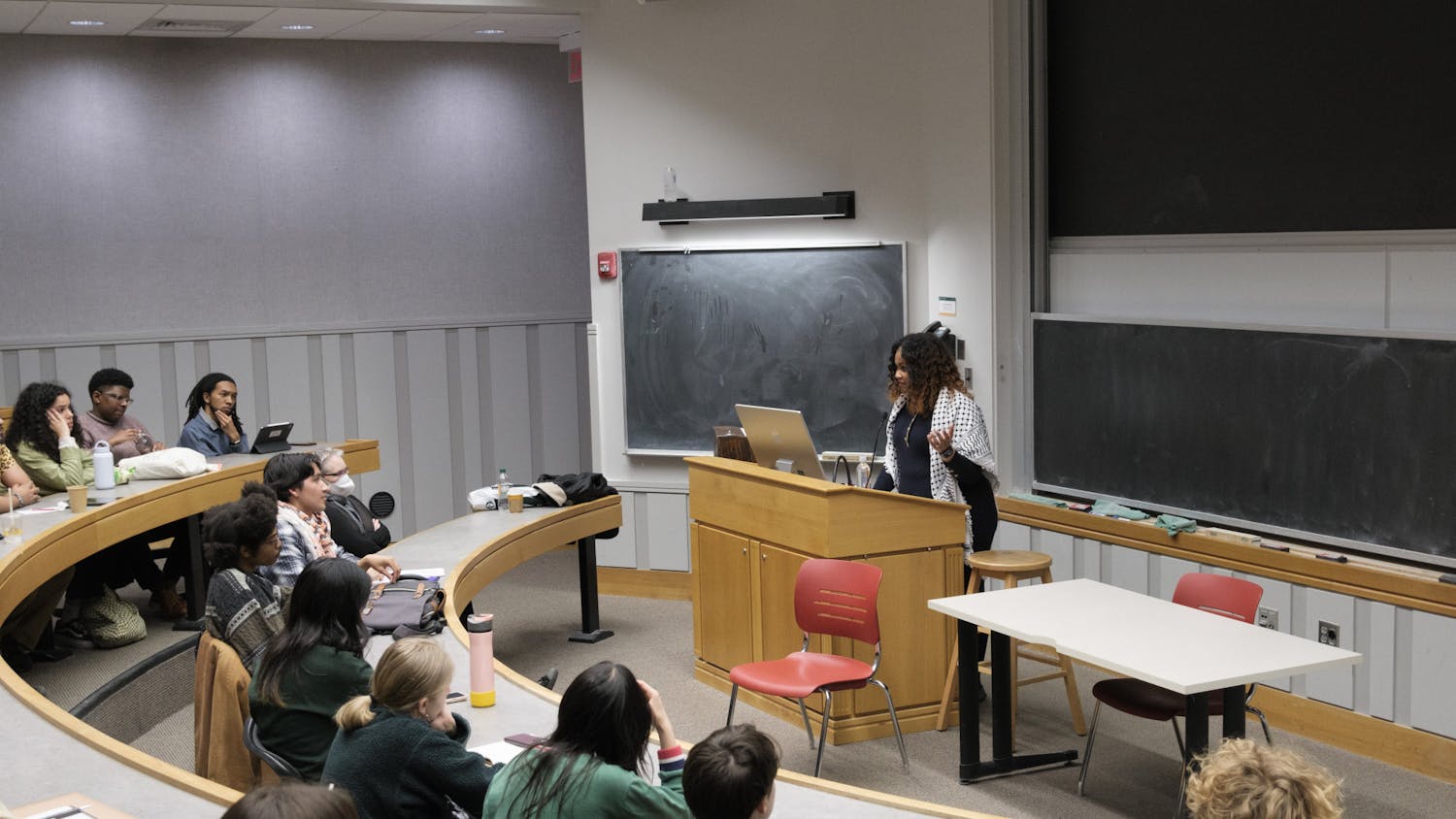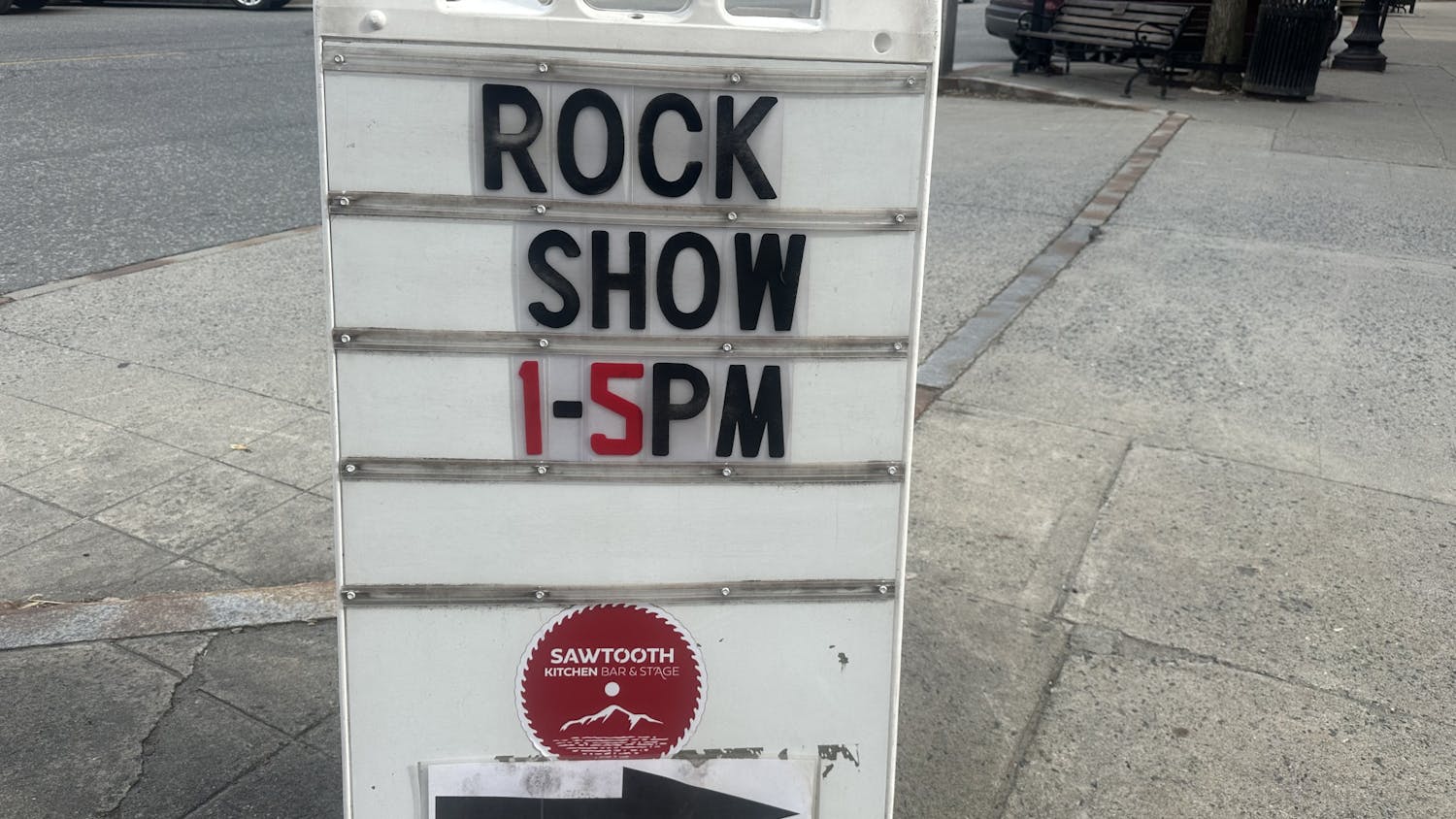Current students, alumni and professors have joined in the national conversation about women's roles in the workplace and the balance between the career and home, which was sparked most recently by a letter from Susan Patton to The Daily Princetonian. As an increasing number of College events tackle these issues, including last weekend's Greenways conference in celebration of coeducation's 40th anniversary, students have begun to take notice.
In a lecture on campus last Wednesday, Anne-Marie Slaughter, whose article in The Atlantic last year titled "Why Women Still Can't Have it All" triggered intense debate, spoke about the challenge that many women face in their efforts to balance their roles as breadwinners and caregivers. Following Slaughter's lecture, Men's Forum and Women's Forum co-hosted a dinner on Monday night to discuss the issues at Casque and Gauntlet senior society.
"It was great to see so many people interested in having the conversation, especially having Men's Forum and Women's Forum combined," Katie Gibson '15 said. "In terms of It's got to start somewhere,' having the conversation is key."
Attendees discussed work-life balance as an issue that affects both men and women. Both groups still feel pressure to fall into their traditional gender roles, and the workforce has yet to provide adequate support to men who wish to spend time caring for their families, Men's Forum president David Sayet '13 said.
"It's not Can women have it all?' or Can men have it all?'" he said. "It's a decision that people make on equal footing. It's still not really normalized that the male could be the caregiver."
Students at the dinner praised Slaughter for publicizing the issue and speaking about her own experiences, but said the conversation was not inclusive enough and lacked diversity in gender, race and socioeconomic status.
Some criticized the notion that career success requires being at the top of a given field. Instead, people may choose to spend more time on other priorities, such as attaining a mid-level job and spending more time at home.
"A frustration of mine with the whole conversation is that it centers on the idea that there's one idea of feminism that the only idea of feminism is to support this whole go-to-the-top mentality," Molly Thornton '14 said. "I think that feminism is just having the option and opportunity to do that."
On the same day that Slaughter spoke at Dartmouth, Emily Smith '09 published an op-ed in The Wall Street Journal, arguing that feminism focuses too much on career success and highlighting the importance of relationships that could turn into marriages. Smith wrote that she identifies as a "certain type of feminist."
Smith's article, titled "Find a Man Today, Graduate Tomorrow," responded to Patton's letter that advised undergraduate women to find a husband while in college, where there is a high concentration of like-minded young men. The letter sparked widespread controversy and received so many views that it shut down the paper's website.
"When I saw the outcry that happened after Patton had written that letter from progressive women and women that called themselves feminists, the criticism didn't connect with me," Smith said. "I think there's a lot of research that suggests time and again that the things that make people happy are relationships."
Dartmouth's "hook-up culture" is harmful to relationships and students should cultivate friendships with their peers, Smith said.
Reaction to Smith's op-ed has been mixed, but some students agreed with her emphasis on the importance of happiness in a student's personal life.
"I think it's really easy to read the title and say, Oh, that's terrible,' but reading it, I agree with it a bit more," Lexi Krupp '15 said. "Going to school is not just about academic experiences. It's not like you're going to school to get your MRS,' it's about going to school and thinking about your broader life."
Students do not yet have spouses or careers, but the issues raised apply to work-life balance in college as well, she said.
"I see it fitting into the dialogue as part of that balance between work-life, classes and social life," Krupp said.
The progress needed in the United States and at Dartmouth to further this balance is clear, women's and gender studies professor Annabel Martin said.
The U.S. does not compare favorably to Europe in terms of parental leave policies and daycare.
"If you compare us with what anyone from Portugal to the tiniest town in Norway gets, we don't fare very well on that issue," she said.
Dartmouth's flexible academic schedule, strong parental leave policies and high-quality local childcare center have all helped professors raising young children, Martin said. Professors also benefit from more generous policies than staff.
"People are very happy with the quality but not with how expensive it is," Martin said. "Affordable, quality childcare that's got to be the mix."
Change can start in a number of ways, and professors and students are increasingly addressing gender issues in classes, she said.
Sanders Davis '14, who took a class with Martin, said he wants to address gender issues at Dartmouth in innovative ways. Davis said he has come to see feminism as a movement for equality for both genders.
"I used to think, before I started taking these classes, that feminism was radical in a sense and that I wouldn't agree with it, and that's just not true," he said.
He said students need to be more attentive to gender issues, since many conversations taking place around campus are held among those who are already aware.
Male involvement will be critical to any future policy change, said Pamela Mason Wagner '81, executive producer of the documentary "Makers," which traces the history of the women's movement in America. Though campus has seen progress toward gender equality since she graduated in the early days of coeducation, a woman's place in the workforce has remained much the same, Wagner said.
"Sadly, the conversation is the same as it was in 1980, it really hasn't progressed much," she said. "I think a large part of this reason, and I think Sheryl Sandberg would agree with this, is that men haven't been brought into the crusade as much as they should be."
Though gender equality has come a long way since the start of the women's movement in the U.S. and coeducation at Dartmouth, the issues still need to be addressed in modern society, English professor Donald Pease said.
"It's not just a question for women, it's a social question, it's a question about bettering the social order and that works to the betterment of everybody," he said. "You can let go of the conversation only when it feels redundant, when the issue has been addressed."



